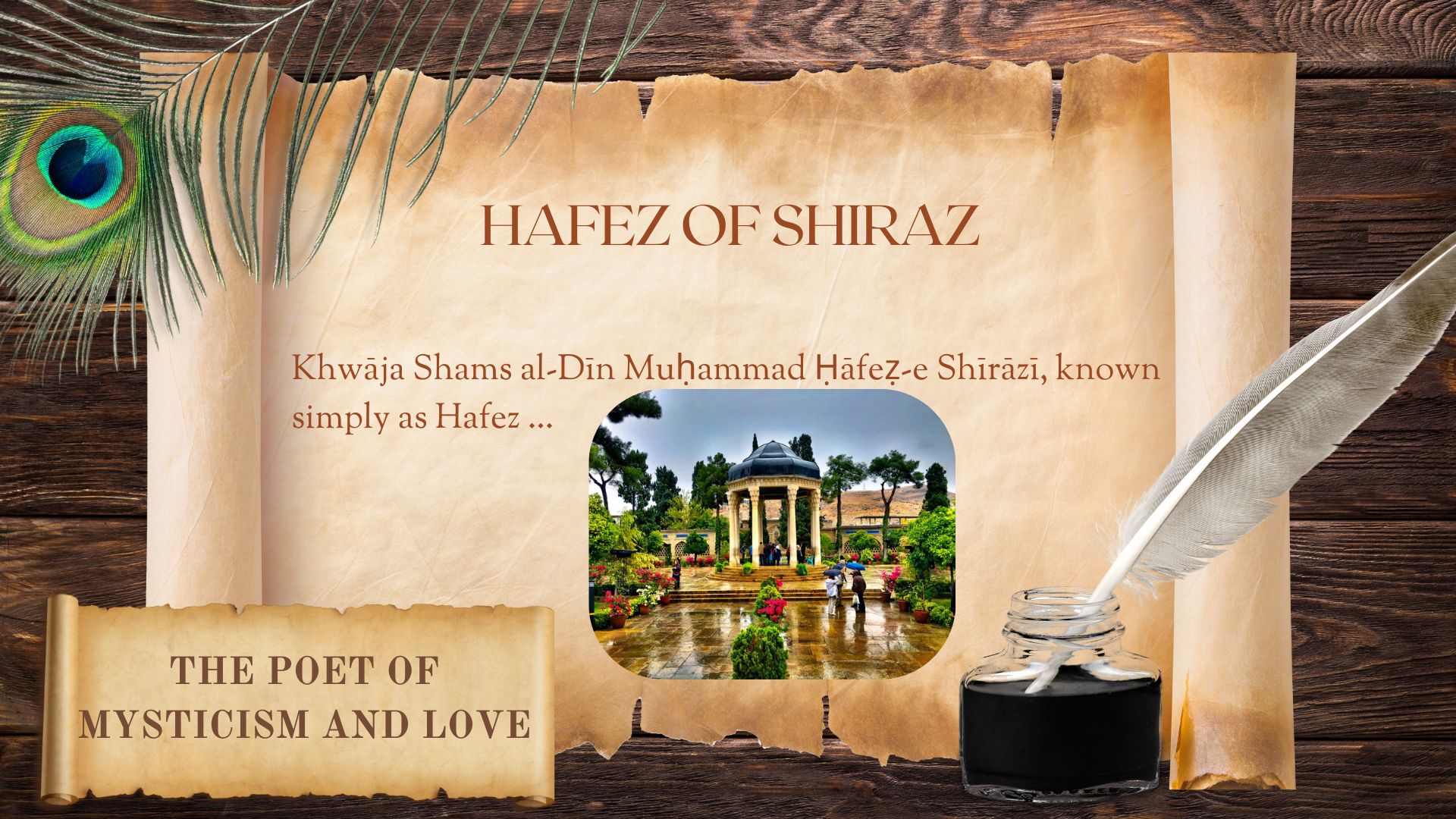Introduction
There are moments when the mind becomes the veil, not the light.
Rumi, in this fierce and ecstatic ghazal, invites the seeker to stop thinking so much. He challenges the intellect’s constant questioning, warning that thought, if not guided by love, turns into oil feeding the fire of separation.
This is not a rejection of wisdom, but an awakening to a deeper knowing; a kind of divine intuition born in stillness, silence, and surrender. Rumi is not saying “be foolish”; he is saying, “be bewildered by God.”
🔥 “Do not think, do not think…”
میندیش میندیش که اندیشهگریها
چو نفتند، بسوزند ز هر بیخ تریها
Do not think, do not think, all these thinkings
Are oil that will burn away the roots of every living thing.
Rumi opens like a thunderclap.
The human mind, forever calculating, analyzing, dissecting, is compared to oil, a fuel for fire. The more we feed it, the more it consumes what is green and alive within us.
This is not a condemnation of reason; it’s an unveiling of its limits. The fire of overthinking dries the garden of the heart. When every feeling must pass through thought’s narrow gate, love itself cannot enter.
The mystic’s first freedom, Rumi says, is from the tyranny of thought.
🌿 “Be simple, be dumb, be drunk…”
خرف باش خرف باش ز مستی و ز حیرت
که تا جمله نیستان نماید شکریها
Be simple, be dumb, be lost in wonder and intoxication
That the entire reed-bed may reveal its hidden sugar.
“خرف باش” — literally “be simple-minded”, sounds like a provocation. But Rumi’s “simplicity” is not stupidity. It is emptiness of pride.
When the mind’s cleverness dissolves, when you stop trying to explain love and instead taste it, the whole world becomes honey. The reed-bed (“نیستان”) recalls the opening of the Masnavi, where the reed flute sings because it has been cut from the reed-bed. Now, the same “reed-bed” reveals sweetness, meaning, once you surrender your cleverness, life itself becomes music again.
🦁 “Madness is courage”
جنونست شجاعت میندیش و درانداز
چو شیران و چو مردان گذر کن ز غریها
Madness is courage, do not think, just leap!
Like lions, like men of heart, pass beyond the wilds of fear.
Madness (جنون) here is not illness, it’s divine intoxication, the audacity of the soul that trusts love more than reason.
True bravery, Rumi insists, is not found in battles of sword or word, but in surrendering one’s self-image to the flames of love.
To “pass beyond the wilds” means to cross the desert of uncertainty without map or guide. Only love’s madness can lead you there.
In Sufi imagery, lions are not predators, they are symbols of spiritual fearlessness. The lion of God walks into the unknown roaring “God,” not with arrogance, but with awe.
🕸️ “Thought is a trap”
که اندیشه چو دامست بر ایثار حرامست
چرا باید حیلت پی لقمهبریها
Thought is a trap; it forbids the generous heart.
Why must you scheme for a morsel of bread?
In this verse, Rumi turns scathing. Thought, when ruled by self-interest, becomes a trap, a cage that prevents true generosity. When the mind’s schemes are all about taking, it forgets the art of giving.
“Why must you use cunning to fetch a morsel?” he asks.
It’s a call to trust in divine provision. The more we scheme for survival, the less we live in grace.
Sufi masters often describe this as the difference between ‘aql (intellect) and ishq (love). ‘Aql builds walls, ishq burns them.
🌊 “Seal the path of appetite”
ره لقمه چو بستی ز هر حیله برستی
وگر حرص بنالد بگیریم کریها
Once you’ve closed the road of craving, you’re free of every trick.
And if greed starts crying, play deaf, my friend!
This is Rumi’s final stroke, sharp and compassionate.
He tells us: once you stop obeying your hungers, not just for food, but for power, validation, control, you’re beyond manipulation.
Greed, like a spoiled child, will cry. Let it.
Pretend you cannot hear. Only then does real freedom begin.
The path of silence leads to the banquet of love.
🌹 Rumi’s Vision: A World Beyond Cleverness
In every line, Rumi dismantles the illusion of “clever spirituality.”
He’s warning us against mistaking talk for truth, theory for transformation.
The clever person builds ladders of logic to reach God. The lover sets fire to the ladders and flies.
To Rumi, the unthinking heart is not ignorance; it is innocence restored.
The saints and lovers, drunk and bewildered, walk as if mad because they see what we cannot: that love is the only reality.
His command, “Be dumb, be drunk, be mad,” is not an insult but a liberation; an invitation to return to the original simplicity of being.
🌙 The Silence Beneath All Thought
If Hafez calls us to weep, and Attar to burn, Rumi calls us to disappear into stillness.
When all the thoughts quiet down, when the mind stops asking “why”, something vast awakens.
It is then that the reed-bed reveals its sugar,
the desert reveals its wine,
and even silence becomes a song.
🕊️ Conclusion
Rumi’s ghazal is not about anti-intellectualism; it’s about the transformation of intellect into light.
He wants us to move from thinking to seeing, from explaining to tasting.
To live in love is to risk the fire
but from that fire, even ashes shine.
“Be simple, be drunk, be lost in wonder
That the reed-bed may reveal its hidden sugar.”





